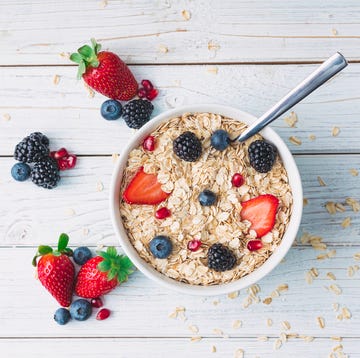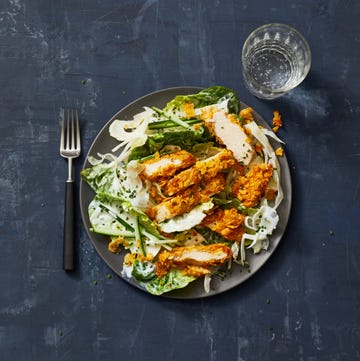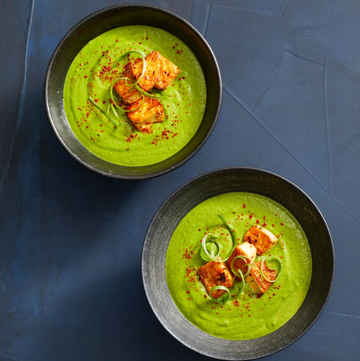8 Best High-Protein Nuts You Should Be Eating, According to Dietitians
Level up snack time with these satiating picks.

If you go nuts for nuts, you’re in for a treat: Those crunchy little morsels are a great source of plant-based protein, plus other essential nutrients. You may be most apt to nosh on nuts as a snack, but they’re super-versatile and can be used in tons of different dishes, both savory and sweet. And since nuts are so nutrient-rich, you don’t need to eat too many to reap their benefit.
“Eating a handful of nuts daily as part of a healthy diet may be good for heart health, brain health and managing your weight because they’re a great source of fiber, protein, healthy unsaturated fatty acids, antioxidants, vitamins and minerals,” says Jerlyn Jones, MS, RD, a registered dietitian and owner of The Lifestyle Dietitian in Atlanta. Getting enough protein is a trendy wellness task these days, and the high-protein nuts below can be a great way to pad your daily intake.
Wondering how much protein to aim for? The recommendation is 0.8 to 1 gram per kilogram body weight daily. If you weigh 160 pounds, then you need roughly 58 – 72 grams each day. When it comes to calories, about 10 – 35% should come from protein. It may vary a bit by factors like age and activity level.
Stefani (she/her) is a registered dietitian, a NASM-certified personal trainer and the director of the Good Housekeeping Institute Nutrition Lab, where she handles all nutrition-related content, testing and evaluation. She holds a bachelor’s degree in nutritional sciences from Pennsylvania State University and a master’s degree in clinical nutrition from NYU. She is also Good Housekeeping’s on-staff fitness and exercise expert. Stefani is dedicated to providing readers with evidence-based content to encourage informed food choices and healthy living. She is an avid CrossFitter and a passionate home cook who loves spending time with her big fit Greek family.


30 High-Protein Lunch Ideas, From Salads to Soups
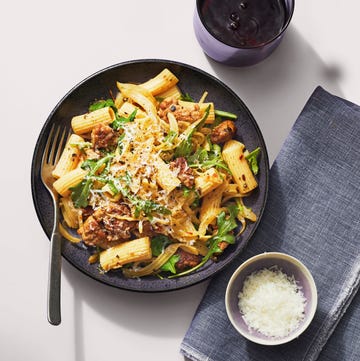
24 Best High-Protein Pasta Recipes

Add These High-Protein Seeds to Your Diet
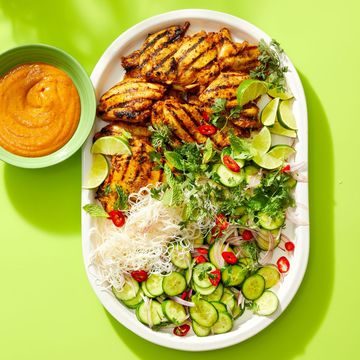
35 High-Protein Recipes








